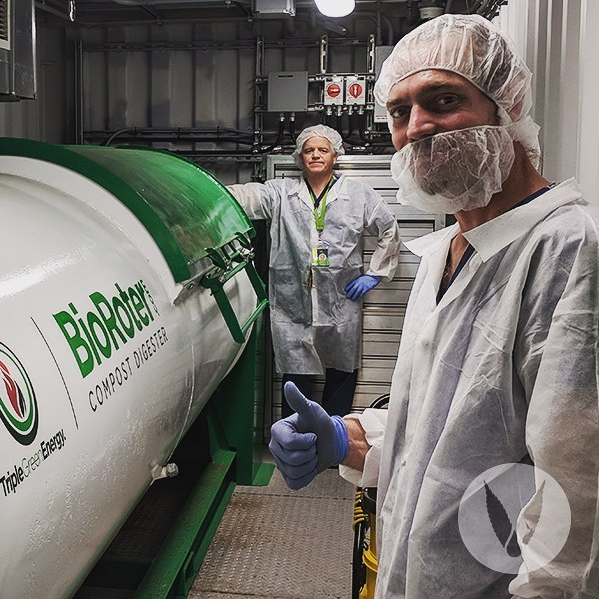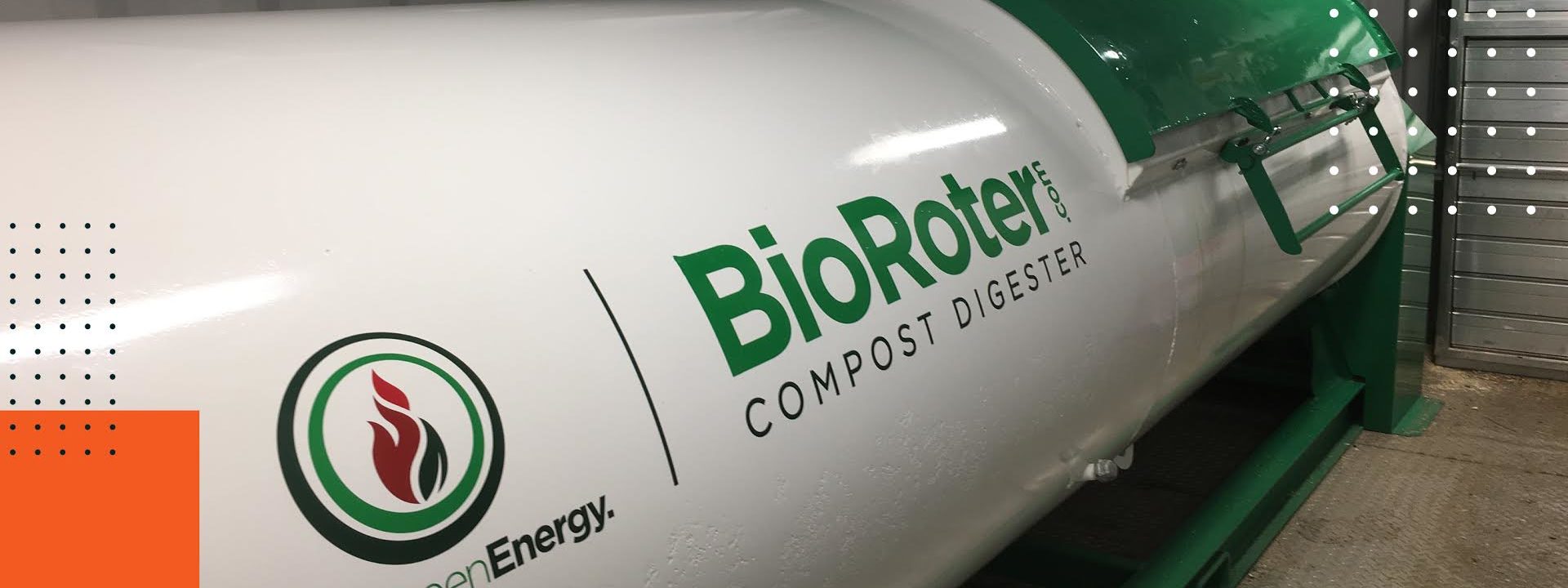At INDIVA, we believe in, and are passionate about environmental sustainability. Aside from recycling wherever we can – from the heat generated by our grow lights, to the paper products we use in our offices – we also reduce our plant waste organic grade compost. This process is completed through INDIVA’s very own 34 ft BioRoter.
What people may not know, is that it is imperative for all licensed producers to denature anything sent off site – including leaves, stems, roots, etc. Several options for this process exist including burning the leftover compost or mixing the compost with water and cat litter (options much harsher on the environment). At INDIVA, we didn’t think these options were sustainable enough, so we landed on a different approach – composting.
The denaturing process is essential as it reduces bio-security risks, destroying pathogens during the composting process. Through this process, INDIVA is creating a high-quality compost that, when used as an organic soil for farming, improves the fertility, structure, and water retention in the soil.

Installed in June 2017, INDIVA plans to establish the first sustainable composting program in London. All excess plant waste production in our facility will be composted into fertilizer and then donated to local organic farmers to promote sustainable agriculture.
This is an important element for farmers who have difficulties sourcing organic compost and fertilizer. While cow and pig fertilizer are an excellent choice for nourishing plants, not all cows and pigs eat organic material, a much costlier feeding program, therefore making it challenging to find.
When the BioRoter is in full gear, it will process the compost in as quickly as one week and regenerate up to approximately 100 kgs of organic soil amendment.
Once the organic compost is added to the soil, the process helps to reduce INDIVA’s Carbon Footprint. If the product waste were to be incinerated, more carbon would be returned to our atmosphere, however, when added to the soil as a beneficial amendment, it will not return carbon dioxide to the atmosphere.
All good things for Mother Earth who is in a tough battle against global warming.
